Expect A "Marked Slowdown" In Retail Sales
According to BAC aggregated debit and credit card spending data, after a strong June, consumers hit the brakes, and total card spending slowed to only up 13% over a 2-year period or 12% over a 1-year for the 7-days ending July 10th. This will mark the slowest 1-year increase since the covid crisis began.
This is a marked slowdown from the prior week.
And here is a breakdown of the key categories seeing a material slowdown in spending:
According to BofA, the slowdown is due to the following factors:
July 4th calendar differences: July 4-6 this year, which tend to be low spending days, was compared to July 7-9 last year, which were normal spending days. This created a notable drag to total card spending, particularly for certain categories such as home improvement and groceries.
Online spending softened: There was a material softening in online spending with the 2-year pace reaching 60% from nearly 90% last week. In contrast, the 2-year growth rate for brick & mortar retail spending has continued to hover around 10%. One possible factor could be the timing of Prime Day promotions which were in June this year versus mid-July in 2019 – the June Prime Day promotions may have pulled forward spending from July. This could also be a dampening factor next week as we will be directly comparing to the July 15-16 Prime Day promotion in 2019.
Unemployment insurance expiration: Starting with the week of June 12, states have been withdrawing early from federal unemployment insurance programs. Some states are removing the additional $300/week of federal aid and others are eliminating the benefits for long-term unemployed who have exhausted state aid. There are also some states that have offered “return-to-work” bonuses in lieu of the benefits. These factors complicate the analysis, but BofA looked at total card spending for the states that have withdrawn from the programs vs. those that have remained, indexed to the May average. Spending is slightly lower for the states that allowed the expiration than for the states
that did not, but only in the most recent week.
Focusing on the states that withdrew and examined spending for those receiving UI vs. those which are not (noting that those receiving have seen a reduction in payments) shows some relative softening in spending for UI recipients.
Bottom line: the expiration of UI likely contributed to the dampening of spending but only modestly.
Of course, none of this matters for tomorrow's retail sales report which focuses on the month of June, and when BofA found that total card spending based on the aggregated BAC card data was up a far more solid 23% on a 2-year and 19% 1-year basis for the 7-days ending July 3rd.
Looking just at June, aggregated BAC card data shows that retail sales ex-autos increased 0.4% month-over-month (mom) seasonally adjusted (SA).
Note that retail sales ex-autos omits all services with the exception of restaurants and therefore understates the strength in consumer spending given the shift in dollars toward services spending.
Said otherwise, the monthly data highlight the rotation from goods to services spending, and BofA's measure of durable goods spending (furniture, electronics and building materials) was a negative contribution to the monthly change in total card spending over the last 3 months while services (restaurants, airlines and lodging) has been a positive contributor all year.
To put this into perspective, the gain in services spending over the last three months has offset the drag from durable goods by three-fold. The more frequent weekly data suggest that this continued into July with a particularly notable improvement in travel-related spending through the early summer.
Finally, what does this mean for tomorrow's retail sales data: as a reminder BofA has been flawless in the past 4 months in predicting the actual retail sales print using its credit card data, even as Wall Street consensus has been dead wrong month after month.
Well, according to the bank, even before the July slowdown, June saw disappointing activity and if the Census Bureau catches down to BofA, tomorrow's headline print will be -0.2%, below the consensus 0.0%, while the ex-autos number will be slightly better than consensus at 0.4% (vs 0.3%) while the core control group which feeds into the GDP calculation will also be just below the 0.3% consensus estimate, or 0.2%
More ominously, after printing green every month this year, the 3 month moving average will post its first contraction tomorrow...
... and if the adverse July trends persist, we are about to see a handful of very disappointing retail sales prints in the coming months.
https://ift.tt/3B5WKK9
from ZeroHedge News https://ift.tt/3B5WKK9
via IFTTT

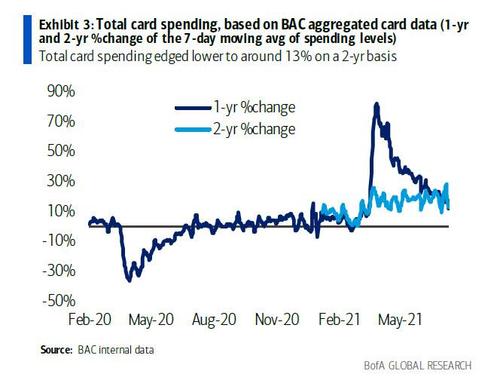
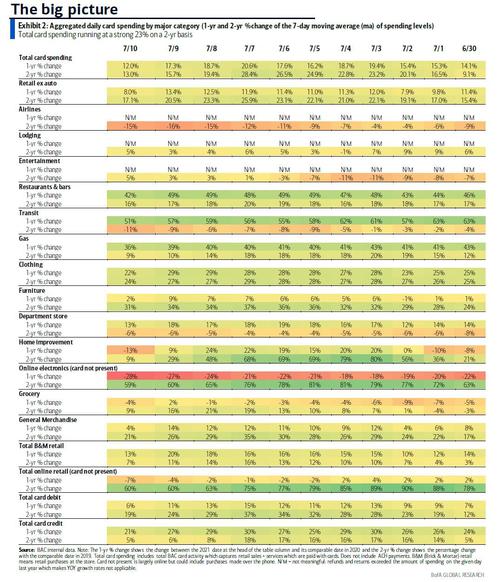
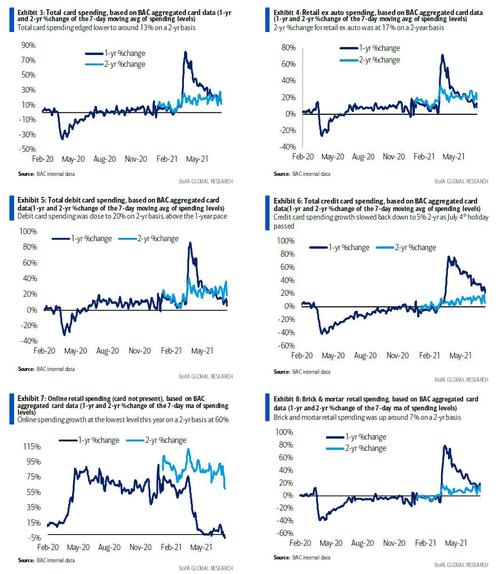

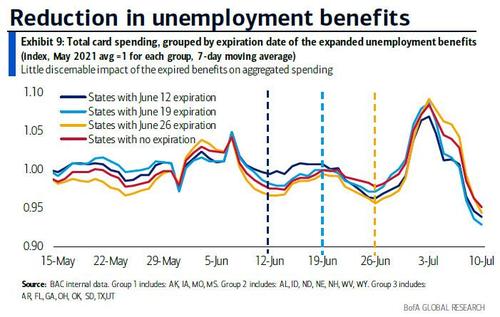

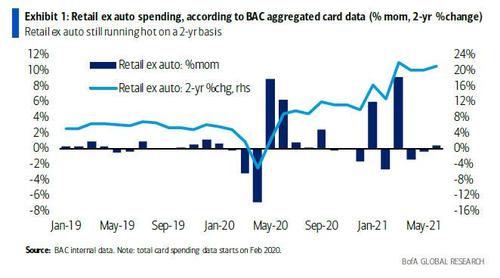
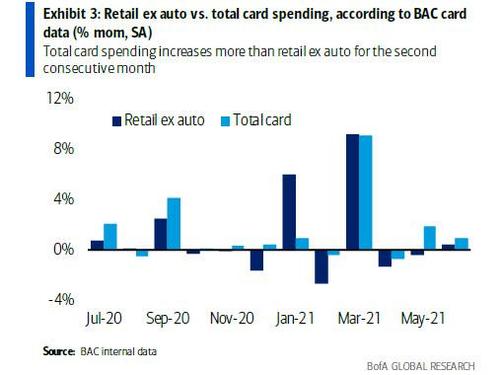
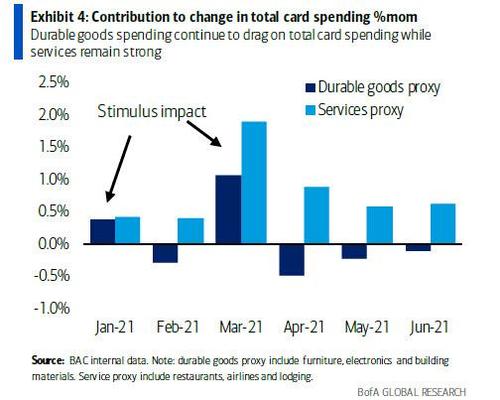
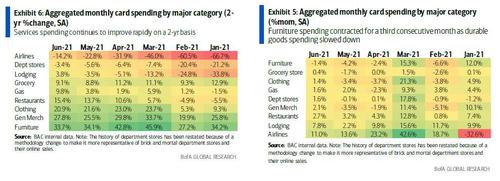
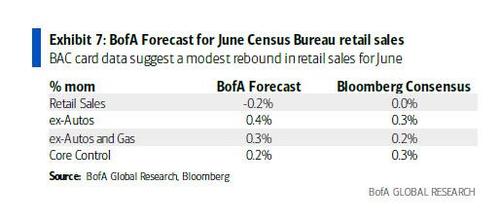
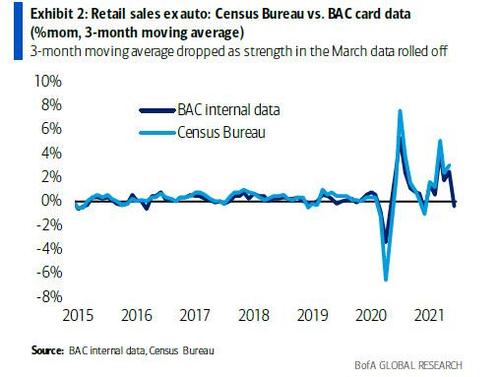
0 comments
Post a Comment